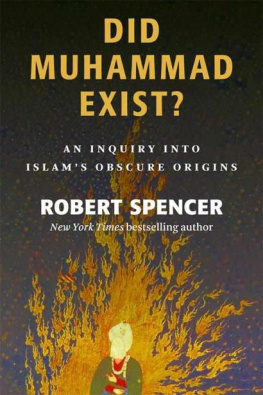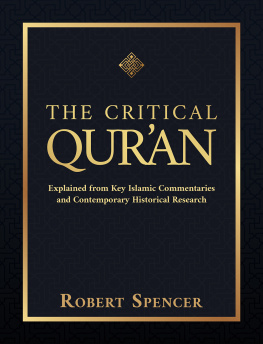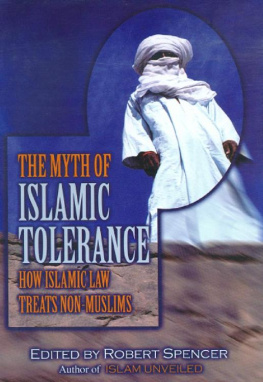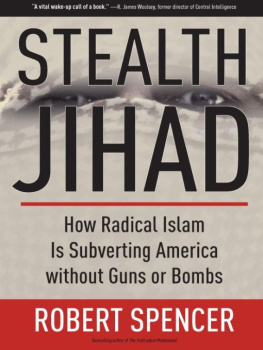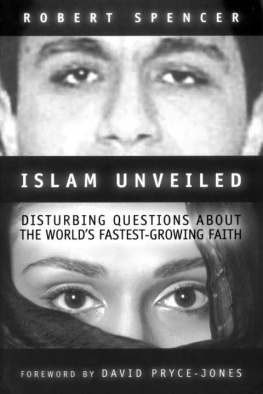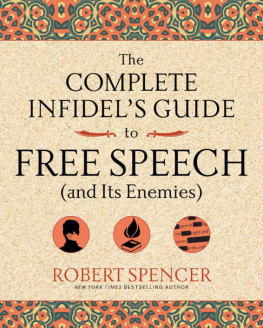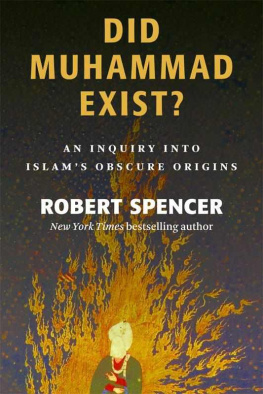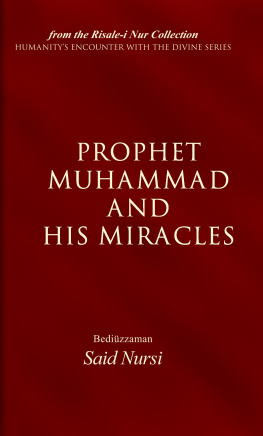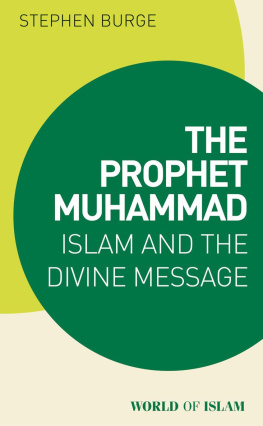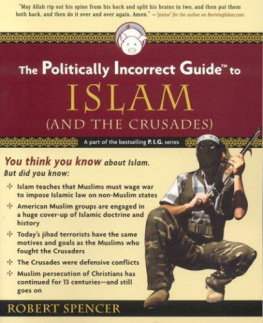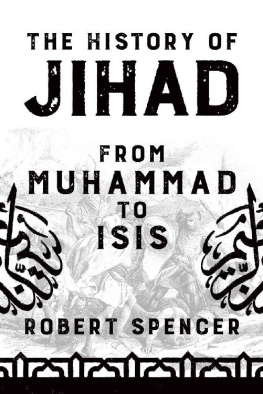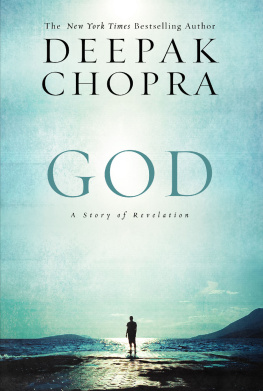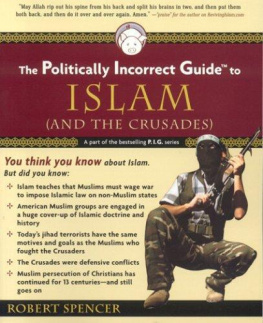Robert Spencer - Did Muhammad Exist?: An Inquiry into Islams Obscure Origins
Here you can read online Robert Spencer - Did Muhammad Exist?: An Inquiry into Islams Obscure Origins full text of the book (entire story) in english for free. Download pdf and epub, get meaning, cover and reviews about this ebook. year: 2012, publisher: Intercollegiate Studies Institute, genre: Religion. Description of the work, (preface) as well as reviews are available. Best literature library LitArk.com created for fans of good reading and offers a wide selection of genres:
Romance novel
Science fiction
Adventure
Detective
Science
History
Home and family
Prose
Art
Politics
Computer
Non-fiction
Religion
Business
Children
Humor
Choose a favorite category and find really read worthwhile books. Enjoy immersion in the world of imagination, feel the emotions of the characters or learn something new for yourself, make an fascinating discovery.
- Book:Did Muhammad Exist?: An Inquiry into Islams Obscure Origins
- Author:
- Publisher:Intercollegiate Studies Institute
- Genre:
- Year:2012
- Rating:5 / 5
- Favourites:Add to favourites
- Your mark:
Did Muhammad Exist?: An Inquiry into Islams Obscure Origins: summary, description and annotation
We offer to read an annotation, description, summary or preface (depends on what the author of the book "Did Muhammad Exist?: An Inquiry into Islams Obscure Origins" wrote himself). If you haven't found the necessary information about the book — write in the comments, we will try to find it.
Are jihadists dying for a fiction? Everything you thought you knew about Islam is about to change.
Did Muhammad exist?
It is a question that few have thoughtor daredto ask. Virtually everyone, Muslim and non-Muslim alike, takes for granted that the prophet of Islam lived and led in seventh-century Arabia.
But this widely accepted story begins to crumble on close examination, as Robert Spencer shows in his eye-opening new book.
In his blockbuster bestseller The Truth about Muhammad, Spencer revealed the shocking contents of the earliest Islamic biographical material about the prophet of Islam. Now, in Did Muhammad Exist?, he uncovers that materials surprisingly shaky historical foundations. Spencer meticulously examines historical records, archaeological findings, and pioneering new scholarship to reconstruct what we can know about Muhammad, the Quran, and the early days of Islam. The evidence he presents challenges the most fundamental assumptions about Islams origins.
Did Muhammad Exist? reveals:
- How the earliest biographical material about Muhammad dates from at least 125 years after his reported death
- How six decades passed before the Arabian conquerorsor the people they conqueredeven mentioned Muhammad, the Quran, or Islam
- The startling evidence that the Quran was constructed from existing materialsincluding pre-Islamic Christian texts
- How even Muslim scholars acknowledge that countless reports of Muhammads deeds were fabricated
- Why a famous mosque inscription may refer not to Muhammad but, astonishingly, to Jesus
- How the oldest records referring to a man named Muhammad bear little resemblance to the now-standard Islamic account of the life of the prophet
- The many indications that Arabian leaders fashioned Islam for political reasons
Far from an anti-Islamic polemic, Did Muhammad Exist? is a sober but unflinching look at the origins of one of the worlds major religions. While Judaism and Christianity have been subjected to searching historical criticism for more than two centuries, Islam has never received the same treatment on any significant scale.
The real story of Muhammad and early Islam has long remained in the shadows. Robert Spencer brings it into the light at long last.
Robert Spencer: author's other books
Who wrote Did Muhammad Exist?: An Inquiry into Islams Obscure Origins? Find out the surname, the name of the author of the book and a list of all author's works by series.

